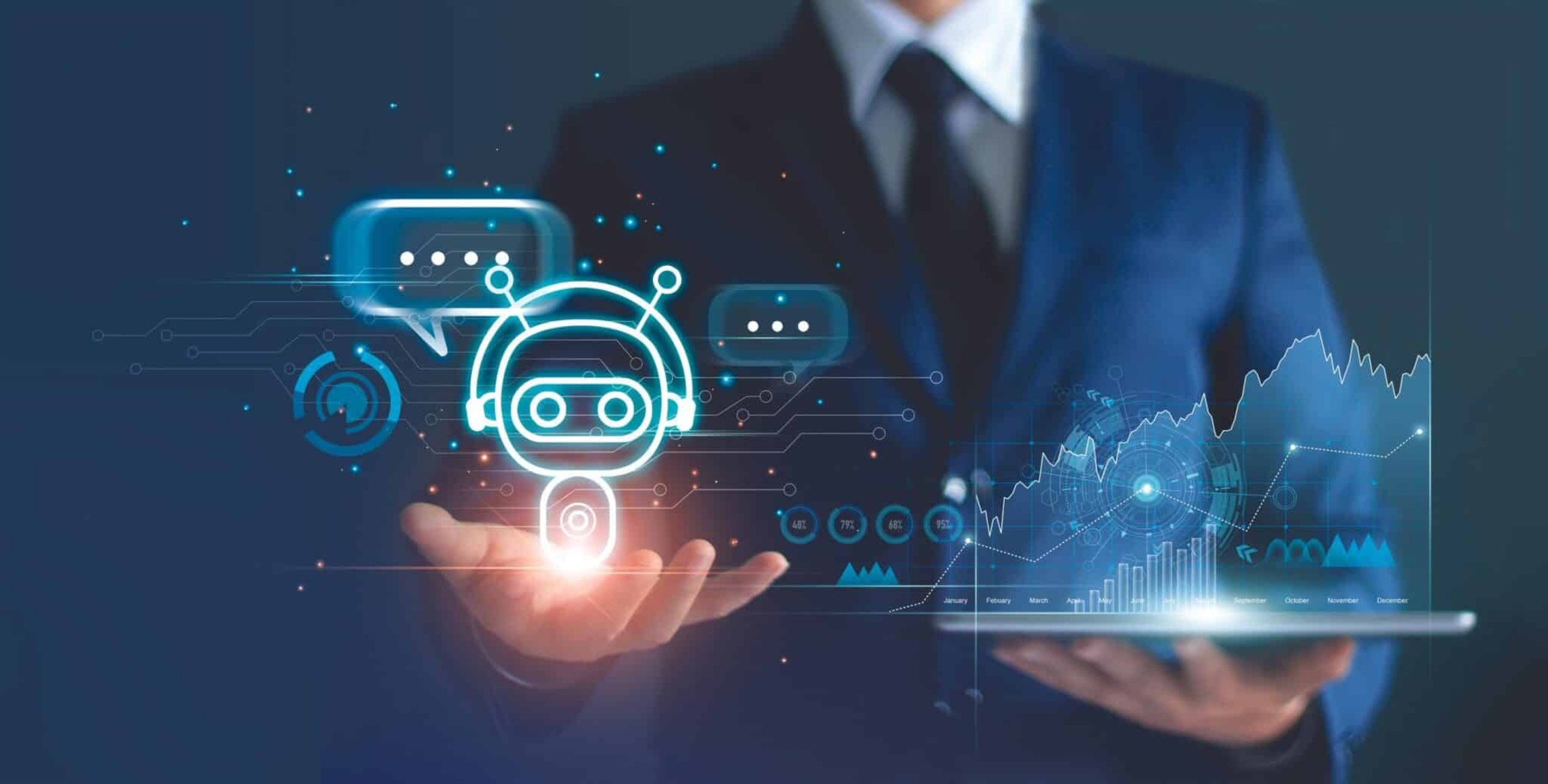Enhancing Client Communication
Effective communication is the cornerstone of a successful lawyer-client relationship. Lawyers have traditionally relied on phone calls, emails, and in-person meetings to connect with their clients. However, with the advancement of technology, lawyers are now harnessing the power of chatbots to enhance client communication.
Chatbots provide an efficient and convenient way for lawyers to interact with their clients. These AI-powered virtual assistants can handle a wide range of inquiries, providing clients with prompt and accurate responses. Whether a client has a simple question or needs guidance on a complex legal matter, chatbots can deliver the information they need in real-time.
By incorporating chatbots into their communication strategy, lawyers can offer round-the-clock support. A client can reach out for assistance at any time, even outside of regular business hours. This level of accessibility helps build trust and strengthens the lawyer-client relationship, providing clients with peace of mind knowing that their legal needs are being attended to promptly.
Furthermore, chatbots streamline communication by minimizing the need for back-and-forth emails or phone calls. Clients can receive instant updates on their case status, schedule appointments, and access relevant documents through a chatbot interface. This efficient communication process saves both parties valuable time and ensures that important information is conveyed accurately.
Chatbots can also be programmed to provide personalized communication tailored to each client’s specific needs. Through natural language processing, chatbots can understand client queries and respond in a manner that is easily understandable. This level of customization helps foster stronger connections between lawyers and clients, making clients feel heard and valued.
Additionally, the use of chatbots in client communication can lead to cost savings for both lawyers and clients. With chatbots handling routine inquiries and providing self-service resources, lawyers can allocate more time to complex legal tasks. This increased efficiency allows lawyers to serve a larger client base without compromising the quality of service.
Streamlining Initial Consultations
The initial consultation is a crucial step in the lawyer-client relationship. It is during this meeting that lawyers gather information about the client’s case and determine the appropriate legal strategy. Chatbots have proven to be invaluable tools in streamlining these initial consultations.
By integrating chatbots into their websites or platforms, lawyers can provide potential clients with a convenient way to schedule and prepare for consultations. Chatbots can guide clients through a series of questions to gather relevant information about their case before the meeting. This automated process not only saves time but also ensures that the lawyer has the necessary details to provide accurate advice during the consultation.
Chatbots can also assist in managing the logistics of the consultation. They can help schedule appointments, send reminders, and provide directions to the lawyer’s office. This eliminates the need for lengthy email exchanges or phone calls to coordinate the meeting, making the process smoother and more efficient for both the lawyer and the client.
During the consultation itself, chatbots can be used to take detailed notes and transcribe important information. This eliminates the need for manual note-taking by the lawyer, allowing them to focus fully on the client and their legal concerns. These automated notes can then be easily stored and accessed for future reference, ensuring that nothing discussed during the consultation is overlooked.
Furthermore, chatbots can provide clients with relevant legal information and resources prior to the consultation. By gathering basic details about the client’s case, the chatbot can share relevant articles, FAQs, or self-help resources that may address some of the client’s concerns or questions. This pre-consultation information empowers clients and allows them to come to the meeting with a better understanding of their legal situation.
Ultimately, leveraging chatbots in initial consultations enhances the overall client experience. It streamlines the process, provides clients with valuable resources, and allows lawyers to focus on delivering personalized advice and solutions. By incorporating this technology, lawyers can make a positive impression right from the first interaction, setting the stage for a productive and successful client-lawyer relationship.
Automating Routine Legal Tasks
Lawyers are often faced with a wide range of routine tasks that can be time-consuming and repetitive. However, with the aid of chatbots, these tasks can be automated, freeing up valuable time for lawyers to focus on more complex and strategic matters.
One area where chatbots excel in automating routine legal tasks is in document generation and management. Chatbots can be programmed to generate draft documents based on predefined templates and client-specific information. These documents can include contracts, agreements, and legal forms. By automating this process, lawyers can save significant time and ensure consistency and accuracy in the documents they produce.
Chatbots can also assist in document review by utilizing natural language processing algorithms. They can analyze legal documents and highlight potential issues, inconsistencies, or missing information. This allows lawyers to efficiently review and make necessary revisions, further speeding up the document review process.
Another routine task that chatbots can automate is legal research. By utilizing machine learning algorithms, chatbots can sift through vast amounts of legal information and provide lawyers with relevant cases, statutes, and legal precedents. This not only saves lawyers valuable time but also ensures that their research is comprehensive and up-to-date.
Chatbots can also be beneficial in automating the invoicing and billing process. By integrating with practice management systems or financial software, chatbots can generate invoices, track billable hours, and send payment reminders. This automation helps improve cash flow and reduces the administrative burden on lawyers and their support staff.
Furthermore, chatbots can handle basic legal inquiries from clients, such as providing information on court procedures, legal deadlines, or general legal advice. While chatbots cannot replace the expertise and nuanced advice of a lawyer, they can offer quick and accurate information to clients, saving both parties time and resources.
Overall, the automation of routine legal tasks through chatbots increases efficiency, improves accuracy, and allows lawyers to focus on higher-value work. By delegating these repetitive tasks to chatbots, lawyers can provide better service to their clients while maximizing their own productivity.
Providing 24/7 Legal Assistance
Legal issues can arise at any time, and clients often need immediate access to legal assistance. However, lawyers cannot be available round the clock. This is where chatbots play a vital role – by providing 24/7 legal assistance.
With chatbots, clients can access legal guidance and information at any time of the day or night. They can ask questions, seek advice, and receive immediate responses. This round-the-clock availability instills a sense of trust and reliability, as clients know that they can rely on the chatbot for assistance, even during emergencies or outside regular business hours.
Chatbots are programmed with a vast amount of legal knowledge and information, allowing them to address a wide range of legal issues. Clients can inquire about their rights, legal processes, and potential courses of action. The chatbot can provide accurate and up-to-date answers, ensuring that clients are well-informed about their legal situation.
In addition to providing general guidance, chatbots can also help clients navigate specific legal procedures. For instance, if a client needs to file a complaint or submit documentation, the chatbot can provide step-by-step instructions, guiding the client through the process. This level of assistance ensures that clients are empowered to take appropriate actions in a timely manner.
Moreover, chatbots can assist clients in locating relevant resources and services. They can provide referrals to legal aid organizations, mediation services, or other professionals who can further assist clients with their specific legal needs. By acting as a gateway to additional support, chatbots help clients access a comprehensive network of resources.
By offering 24/7 legal assistance through chatbots, lawyers can better serve their clients and meet their needs in a timely manner. Clients no longer have to wait until business hours to seek legal help or encounter delays due to scheduling conflicts. Instead, they can receive immediate support and guidance whenever they need it, ensuring that their legal concerns are addressed promptly.
It is important to note that while chatbots provide valuable assistance, they are not a substitute for personalized legal advice from a lawyer. If a client’s situation requires in-depth analysis or representation, the chatbot can seamlessly transition the conversation to a human lawyer, ensuring that the client receives the necessary expertise and guidance for their specific case.
Assisting with Document Drafting and Review
Document drafting and review are integral parts of a lawyer’s work, requiring meticulous attention to detail and accuracy. Chatbots have emerged as valuable tools in streamlining these processes, assisting lawyers with both the creation and assessment of legal documents.
When it comes to document drafting, chatbots can be programmed with predefined templates and clauses to expedite the process. Lawyers can simply input the necessary information, such as client names, dates, and specific terms, and the chatbot can automatically generate the initial draft. This automation not only saves time but also ensures consistency and reduces the risk of human error in drafting legal documents.
Moreover, chatbots can assist lawyers during the review process by employing natural language processing algorithms. They can analyze the content of the document, flagging potential issues, inconsistencies, or missing information. This automated review helps lawyers identify and rectify any errors or gaps before finalizing the document.
Chatbots can also help with proofreading and editing, ensuring that legal documents are grammatically correct and well-structured. By providing suggestions for sentence improvements, word choice, and formatting, chatbots can enhance the clarity and professionalism of the document.
Beyond drafting and reviewing, chatbots can assist in document management and organization. They can securely store and categorize legal documents, making it easier for lawyers to access and retrieve the required information. This digital document management system eliminates the need for physical paperwork, reducing the risk of misplacing or losing important documents.
Additionally, chatbots can automate the process of document version control. They can maintain a record of previous document versions, track changes, and provide a clear audit trail. This ensures that lawyers and their clients have access to the most up-to-date and accurately amended versions of the document.
By leveraging chatbots for document drafting and review, lawyers can significantly streamline their workflow, increase efficiency, and improve accuracy in document creation. With the assistance of chatbots, lawyers can dedicate more time to strategizing and focusing on the legal aspects of the case, resulting in enhanced client service and better outcomes.
Handling Basic Legal Inquiries
Law firms often receive numerous basic legal inquiries from potential clients or individuals seeking general legal information. Responding to these inquiries individually can be time-consuming and may divert resources away from more complex legal matters. However, with chatbots, handling these basic legal inquiries becomes much more efficient and cost-effective.
Chatbots can be programmed to answer common legal questions and provide general information on various legal topics. By utilizing natural language processing and machine learning capabilities, chatbots can understand the user’s query and deliver accurate responses based on the firm’s knowledge base.
Basic legal inquiries can cover a wide range of topics, such as queries about legal rights, legal processes, or general legal advice. Chatbots can provide relevant information, clarifications, and guide users towards appropriate next steps. They can also offer links to relevant articles, FAQs, or self-help resources to further assist users in understanding their legal situation.
Moreover, chatbots can collect initial information from potential clients who are seeking legal assistance. By asking a series of questions, chatbots can gather relevant details about the individual’s case, enabling lawyers to assess the situation before engaging in further communication. This saves time for both the potential client and the firm, as it helps determine whether the firm is the right fit for the individual’s needs.
Handling basic legal inquiries through chatbots not only provides immediate responses but also ensures consistent and accurate information. By using predefined responses and access to the firm’s knowledge base, chatbots can deliver reliable information without the risk of human error or inconsistency.
Furthermore, chatbots enable law firms to handle a high volume of inquiries simultaneously. Multiple users can engage with the chatbot at the same time, receiving prompt responses and reducing wait times. This scalability allows firms to efficiently address the needs of a broad range of individuals seeking basic legal information.
It is important to note that while chatbots can address basic legal inquiries, they are not a substitute for personalized legal advice from a qualified lawyer. If a user’s situation requires specific legal analysis or representation, chatbots can seamlessly transition the communication to a human lawyer, ensuring that the individual receives the necessary expertise and guidance.
By employing chatbots to handle basic legal inquiries, law firms can improve their response times, enhance user satisfaction, and optimize their resources. This technology enables firms to better serve a broader range of individuals seeking general legal information, while allowing lawyers to focus their expertise on more complex and specialized matters.
Improving Efficiency in Legal Research
Legal research is an essential part of a lawyer’s work, requiring extensive and thorough examination of relevant laws, regulations, and precedents. Traditionally, legal research has been a time-consuming and labor-intensive process. However, with the advent of chatbots, the efficiency of legal research has improved significantly.
Chatbots can utilize advanced algorithms and machine learning to sift through vast amounts of legal information in a fraction of the time it would take a human researcher. They can quickly analyze and categorize relevant cases, statutes, regulations, and legal opinions based on specific keywords or criteria.
Through natural language processing, chatbots can understand user queries and provide accurate search results. Lawyers can simply input their research queries into the chatbot, and it will retrieve pertinent legal information from databases, legal libraries, and trusted sources. This streamlined process saves lawyers valuable time and enables them to access multiple sources of information simultaneously.
Furthermore, chatbots can provide summaries and key insights from legal texts, helping lawyers grasp the main points of complex legal documents more efficiently. By extracting the most important details from lengthy legal texts, chatbots help lawyers quickly identify relevant information and focus on the critical aspects of their research.
Additionally, chatbots can stay up-to-date with the latest legal developments. They can track changes in laws and regulations, monitor court decisions, and notify lawyers of any relevant updates. This ensures that lawyers have access to the most current legal information and can provide accurate and relevant advice to their clients.
Collaborative legal research among lawyers can also be facilitated by chatbots. Lawyers can share research findings, exchange notes, and collaborate on a single platform. Chatbots can provide a centralized and organized space for lawyers to collaborate, reducing redundancies and improving overall efficiency in the research process.
By leveraging chatbots in legal research, law firms can not only save time and resources but also enhance the overall quality of their research. Lawyers can focus their efforts on analyzing and interpreting legal information, rather than spending excessive time searching for the relevant materials. This improved efficiency allows lawyers to provide more accurate and timely legal advice to their clients.
Managing Appointment Scheduling
Efficient appointment scheduling is crucial for lawyers to effectively manage their time and ensure smooth client interactions. Chatbots have become a valuable tool in managing appointment scheduling, simplifying the process for both lawyers and clients.
By integrating chatbots into their websites or platforms, lawyers can offer clients a user-friendly and automated scheduling system. Chatbots can provide a seamless interface where clients can easily view available time slots, select preferred days and times, and book appointments. This eliminates the need for back-and-forth emails or phone calls to find mutually convenient meeting times.
Chatbots can manage and update lawyers’ calendars in real-time. Once an appointment is scheduled, the chatbot can automatically mark the time slot as booked, preventing any potential scheduling conflicts. This helps lawyers stay organized and avoids the frustration of double-booking or missed appointments.
Furthermore, chatbots can send automated reminders and notifications to clients prior to their scheduled appointments. These reminders can include details about the meeting, such as the location or any required preparation. By sending these reminders, chatbots reduce the likelihood of missed appointments and help clients come prepared.
Chatbots can also handle rescheduling or cancellations. Clients can communicate their changes or conflicts with the chatbot, and it can offer alternative time slots or assist in rescheduling the appointment. This flexibility ensures that clients can still receive the necessary legal assistance without significant disruption to their schedules.
Additionally, chatbots can provide relevant information to clients when booking an appointment. They can gather basic details about the client’s legal needs, ensuring that the appropriate attorney is assigned to the appointment. This personalized approach saves time and helps lawyers prepare in advance, so they can address the client’s specific concerns more effectively.
By utilizing chatbots for appointment scheduling, law firms can optimize their workflow and enhance client satisfaction. Lawyers can spend less time managing calendars and more time on billable work. Clients benefit from a streamlined and convenient scheduling process, as well as timely reminders to ensure they never miss an important appointment.
It is important to note that while chatbots facilitate the appointment scheduling process, they are not a substitute for direct communication with a lawyer. If clients have specific questions or concerns that require immediate attention, the chatbot can seamlessly transfer the conversation to a lawyer or provide contact information for further assistance.
Collecting Client Information
Collecting accurate and comprehensive client information is crucial for lawyers to effectively represent their clients and provide tailored legal solutions. Chatbots have emerged as invaluable tools in streamlining the process of gathering client information, ensuring efficiency and accuracy.
By integrating chatbots into their websites or platforms, lawyers can provide clients with a convenient and user-friendly interface to input their information. Chatbots can ask a series of targeted questions to gather essential details, such as contact information, case-specific information, relevant documents, and any other pertinent data.
Chatbots can employ natural language processing algorithms to understand client responses and prompt for additional information when necessary. This ensures that clients provide all the necessary details, minimizing the risk of missing critical information or miscommunication.
Chatbots can also assist in verifying the accuracy of client information. By cross-referencing client responses with known data or legal requirements, chatbots can identify inconsistencies or missing information. They can prompt clients to provide clarification or update their information to ensure data accuracy.
Moreover, chatbots can securely store and organize the collected client information in a centralized system. This digital record ensures easy access and retrieval of client details when needed. It also eliminates the risk of misplacing or losing important client information that could potentially hinder legal representation.
By utilizing chatbots in collecting client information, law firms can not only save time and resources but also minimize clerical errors and improve data consistency. Lawyers can focus their attention on analyzing the gathered information and developing appropriate legal strategies based on accurate and comprehensive client profiles.
In addition, chatbots can assist clients in completing necessary legal forms or documents by guiding them through the process step by step. This interactive approach reduces errors and ensures that clients provide all the required information in the correct format.
It is important to note that chatbots should comply with data protection and privacy regulations to safeguard client information. Implementing secure encryption measures and obtaining informed consent from clients ensures the confidentiality and privacy of the collected data.
Overall, chatbots play a vital role in streamlining the collection of client information. They make the process more efficient, accurate, and convenient for both lawyers and clients. By leveraging chatbots, law firms can enhance their ability to provide personalized and effective legal representation based on comprehensive client profiles.
Promoting Self-Help Resources
Empowering clients with self-help resources is an effective approach to assist them in navigating legal matters independently. Chatbots have become valuable tools in promoting and providing access to self-help resources, making legal information more accessible and understandable for clients.
Chatbots can be programmed to offer a range of self-help resources, including articles, guides, FAQs, and interactive tools. These resources cover common legal topics and address frequently asked questions, providing clients with valuable information and guidance.
By engaging with the chatbot, clients can receive personalized recommendations for self-help resources based on their specific legal needs. The chatbot can analyze the client’s inquiries and suggest relevant articles or guides that address their concerns.
Furthermore, chatbots can provide step-by-step instructions for various legal processes, such as filing forms, understanding legal terminology, or navigating court procedures. These interactive tools help clients become more informed and confident in handling certain legal tasks on their own.
Chatbots can also direct clients to external self-help resources, including reputable websites, legal aid organizations, or government agencies that offer additional support. By acting as a gateway to such resources, chatbots connect clients to a wealth of information and services beyond what the law firm or chatbot can provide directly.
Moreover, chatbots can assist clients in determining whether their legal issue can be resolved through self-help methods or if they need to pursue legal representation. By asking a series of targeted questions, chatbots can assess the complexity and urgency of the client’s situation and guide them on the appropriate course of action.
Ultimately, promoting self-help resources through chatbots benefits both clients and law firms. Clients gain access to valuable information, enabling them to make more informed decisions. At the same time, law firms can focus their resources on more complex cases while still providing clients with the necessary tools to navigate certain legal matters independently.
It is important to note that while chatbots can promote self-help resources, they are not a substitute for personalized legal advice from a qualified lawyer. Chatbots can provide general information and guidance, but for complex legal issues, clients should consult with an attorney to ensure their rights are fully protected.
By leveraging chatbots to promote self-help resources, law firms establish themselves as trusted sources of legal information and empower clients to become more proactive in managing their legal needs. This collaboration between chatbots and clients contributes to a more informed and empowered client base.





